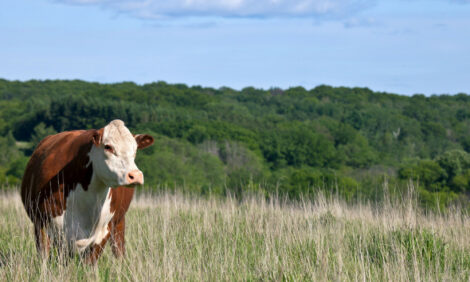



Scotland Maintains Vigilance
UK - National Farmers Union Scotland has welcomed confirmation that Scottish farmers are shunning imports of cattle and sheep from Europe in a bid to keep Scotland free of the devastating disease, bluetongue.Importation of animals from Europe, although legal if certain conditions are met, presents the greatest risk of bringing bluetongue to Scotland. Animals coming to Scotland from those parts of Europe with the same bluetongue status as here must report movements and are required to undergo a post-movement test following importation.
The Scottish Government has confirmed that in January and February of 2009, no such tests were carried out as no susceptible animals were imported directly to Scotland. By way of a comparison, 67 animals were imported into Scotland and required post-movement testing for bluetongue in the first quarter of 2008.
NFU Scotland President, Jim McLaren said:
“As producers, we are holding up our end of the deal. Imports of cattle and sheep from Europe, where the disease has been running rife, have been identified as presenting the greatest risk to our disease-free status. The news that, in the first few months of 2009, there have been no imports into Scotland from the disease hotspots in Europe shows that the messages for Scottish farmers to act responsibly are being heeded.
“By shunning imports and complying with the Scottish compulsory vaccination campaign against the BTV8 strain, Scottish producers are going that extra mile to protect our lifeline livestock industry from the ravages of bluetongue.
“There is no room for complacency. While we are in a position to protect ourselves against strain 8 of the disease through our vaccination campaign, the whole of France and Spain have been toiling to control cases of both BTV1 and BTV8. Poorly implemented vaccination strategies and animal movements have contributed to the deteriorating disease picture in some parts of Europe.
“We need to learn from the way the disease has continued to spread in Europe, work hard to keep Scotland disease free and secure restrictions at a European level that help protect the great work that is being done in Scotland. The hard work will be worth it if we avoid bluetongue infection in the future.”


